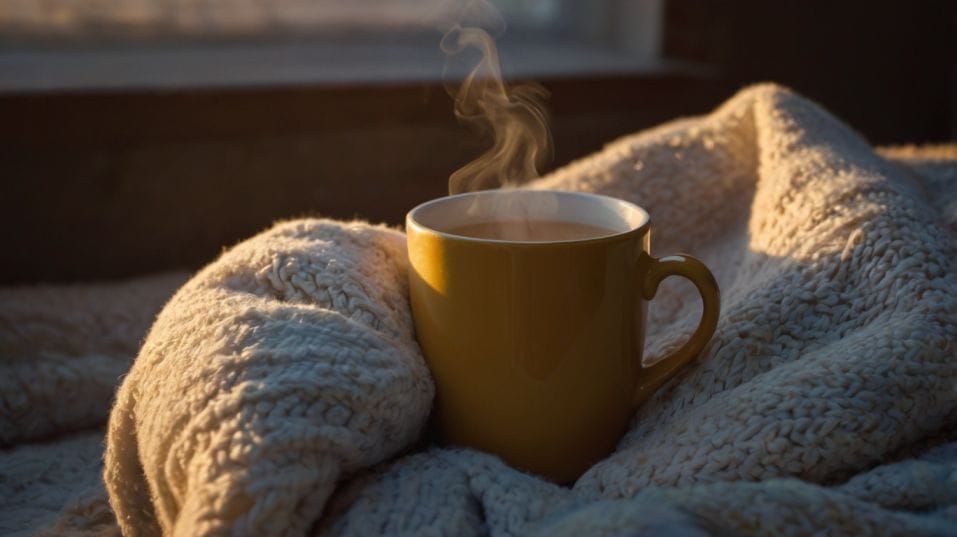The Link Between Sleep and Immune Recovery Post-Illness
Discover how better sleep supercharges your immune recovery after illness—no pills, just proven habits for faster healing and resilience.

What if your body’s best recovery tool isn’t a supplement, smoothie, or prescription—but sleep?
When you’re healing from illness, real progress starts at night. Quality sleep doesn’t just feel good—it’s when your immune system goes to work, repairing cells and rebuilding defenses. Skip it, and your bounce-back slows.
Master it, and recovery accelerates. If you're tired of dragging through post-illness days, it's time to unlock sleep as your most powerful healing habit.
Sleep: The Recovery System You Can’t Skip
When you’re hit with an illness, your immune system springs into action to neutralize and clear out the invader.
But here’s what most people miss: the immune response isn’t just about white blood cells or medication—it’s heavily dependent on how you sleep.
During the deepest phases of non-REM sleep, your body shifts into full repair mode. Immune-regulating proteins called cytokines are released in greater amounts.
These act as signal boosters, telling immune cells where to go, what to attack, and how much inflammation to control.
Meanwhile, sleep also supports the production of T-cells, your immune system’s tactical strike team, which identify and destroy infected cells.
If you’re sleep-deprived—especially after being sick—your body can’t produce these immune components as effectively.
The result? Slower healing, lingering symptoms, and a greater chance of relapse. But when you sleep deeply and consistently, you're reinforcing your immune army at every level.

Why Post-Illness Sleep Needs Are Different
Think of recovery sleep as high-performance sleep. Your body isn’t just trying to recharge from a regular day—it’s repairing tissue, flushing out toxins, balancing hormones, and resetting immune function.
This is a time when your system is working overtime under the hood, and it demands more fuel in the form of quality sleep.
It’s not uncommon to feel extra sleepy during or after illness. That’s not laziness—it’s biology. Your brain and body are nudging you to shut down so internal repairs can accelerate.
Ignoring that urge—by pushing through with caffeine, screen time, or late-night work—delays recovery and weakens your future immune resilience.
How to Upgrade Your Sleep for Maximum Recovery
Here’s where you take action. You don’t need an elaborate routine. You just need to create a sleep setup that removes friction and supports deep, restorative rest. Small changes, done consistently, lead to powerful outcomes.
Lock in Consistency
Set a bedtime and stick to it—even on weekends. Your body’s circadian rhythm (its internal clock) thrives on predictability.
Going to bed at wildly different hours confuses that rhythm, disrupting melatonin release and reducing your time in deep sleep stages. Aim for a target window and guard it like a daily meeting with your future self.
Control Your Environment
Your bedroom should feel like a recovery zone, not a backup office. Keep it cool—ideally around 65°F (18°C). This helps your body naturally lower its core temperature, a trigger for deep sleep initiation. Darkness also matters.
Light exposure, especially from screens or bright bulbs, signals your brain to stay alert. Block out light with blackout curtains or a sleep mask, and use warm, low lighting an hour before bed.
Wind Down With Purpose
You don’t just fall into sleep—you descend into it. Give your brain a clear signal that it’s time to unplug from the day. Try breathwork, reading something low-stimulation, or even just stretching for five minutes.
Skip the all-or-nothing mentality; you don’t need a spa-level routine. You just need one or two simple cues that lower cortisol and help you downshift.
Rethink Evening Tech Use
Blue light delays melatonin production, which delays sleep onset and fragments deep sleep. Use night-shift modes or blue light filters on your devices, but better yet—shut them off at least 30 minutes before bed.
This small act massively improves sleep quality, especially when your immune system needs all the recovery juice it can get.
Morning Light = Stronger Sleep
Want better sleep at night? Step outside within an hour of waking up. Sunlight—particularly early in the day—anchors your circadian rhythm and reinforces a healthy wake/sleep cycle.
It helps your body know when to be alert and when to wind down. Just 10–15 minutes is enough, and it sets you up for more consistent melatonin production later on.
Fuel Recovery with Movement and Hydration
Physical activity and hydration don’t just support overall health—they prime your sleep system, too. Gentle movement during the day, even a short walk, promotes better sleep at night.
Staying hydrated helps regulate body temperature and circulation, both critical during deep sleep. If you’ve been sick, don’t jump back into intense workouts too soon—listen to your energy levels and rebuild gradually.
Sleep Recovery Isn’t a Luxury—It’s Your Edge
Better sleep doesn’t just get you back on your feet faster—it keeps you from falling as hard the next time.
The more consistent and high-quality your sleep, the more resilient your immune system becomes over time. That means fewer sick days, faster bounce-backs, and more days where your energy actually matches your ambition.
The best part? Optimizing sleep is simple. It doesn’t cost anything. It doesn’t require hours of effort. It just takes awareness and a few new habits.
Final Thoughts
If you’ve been sick—or just want to come back stronger—start with sleep. It's the foundation of immune recovery, energy restoration, and total-body repair.
Set a consistent bedtime, wind down without screens, keep your room cool and dark, and catch a little sun in the morning. These aren’t trends. They’re fundamentals that deliver results you’ll feel.
Start now. Build better sleep habits today and upgrade your body’s ability to recover, recharge, and stay strong.




